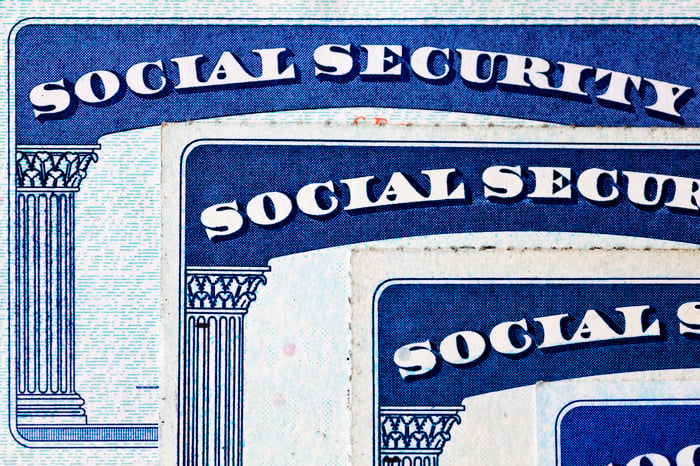Understanding Social Security Benefits: Key Factors Affecting Your Payments
Many retirees today depend significantly on Social Security to meet their living expenses. You may find yourself in a similar situation as retirement approaches.
Estimating your monthly Social Security benefit before retiring is advisable. Thankfully, this task is straightforward.
Where to invest $1,000 right now? Our analyst team just revealed what they believe are the 10 best stocks to buy right now. Learn More »
To obtain an estimate, simply create an account on the Social Security Administration’s website and access your latest earnings statement. This document will summarize your wages and provide a projection of your future benefits.

Image source: Getty Images.
However, it is wise not to rely too heavily on that figure. There are several reasons your Social Security benefit might be smaller than expected.
1. Early Filing Impacts Benefits
To receive your full monthly Social Security benefit based on your earnings record, you must wait until your full retirement age to file. If you decide to sign up earlier, at age 62 or later, you will face a reduced monthly benefit for life.
Not everyone who claims Social Security early does so by choice. Unexpected job loss can lead some individuals to opt for early retirement. Therefore, building a solid savings cushion is essential in case your Social Security income falls short during retirement.
2. Working While Collecting Benefits
Social Security allows recipients to continue working while receiving benefits. Once you reach full retirement age, you can earn any amount without affecting your benefits.
However, there’s a significant period between the ages of 62 and 67. During this time, if your income exceeds the program’s earnings test limits, you may see a portion of your Social Security benefits withheld.
The earnings test limits are adjusted annually. In 2025, it will be $23,400, or $62,160 if you turn full retirement age this year. Exceeding these limits can impact your benefits, so it is crucial to understand the rules.
3. Medicare Premium Deductions
Eligible individuals can enroll in Medicare at age 65. If you receive Social Security and Medicare simultaneously, your Part B premiums are automatically deducted from your benefits.
Part B premiums are not insignificant. For this year, the standard rate is $185 monthly for those who qualify. Thus, if you must pay for Medicare, your net Social Security benefit may be lower.
Keep in mind that higher earners will pay more for Medicare Part B, which can significantly reduce your Social Security checks. If your income level necessitates a Part B surcharge, it might indicate that you rely less on Social Security than someone with lower earnings. Nevertheless, this factor is vital to consider.
There are multiple factors that can result in a smaller Social Security benefit than anticipated. Keeping these points in mind will help you develop a backup plan to avoid financial strain in retirement.
The $22,924 Social Security Bonus Many Overlook
Most Americans are a few years behind on retirement savings. However, some lesser-known “Social Security secrets” could significantly enhance your retirement income. For instance, one simple strategy may yield as much as $22,924 more each year! By mastering how to maximize your Social Security benefits, you can potentially retire with the confidence and security we all desire. Just click here to learn more about these strategies.
View the “Social Security secrets” »
The Motley Fool has a disclosure policy.
The views and opinions expressed herein are the views and opinions of the author and do not necessarily reflect those of Nasdaq, Inc.








